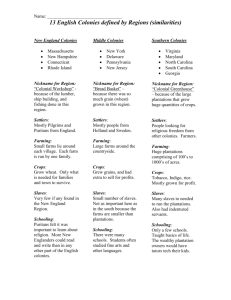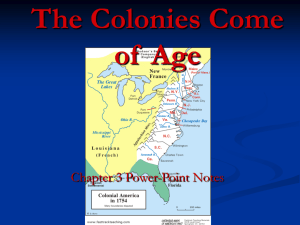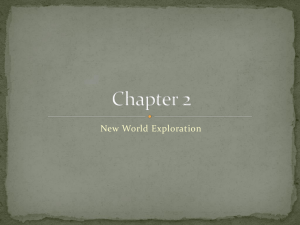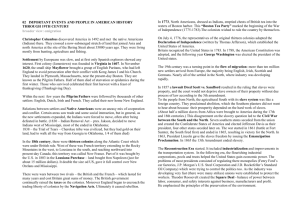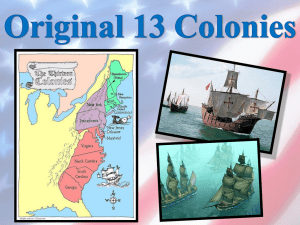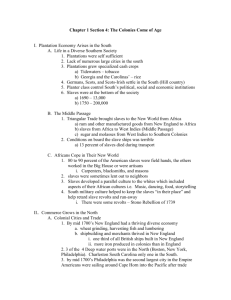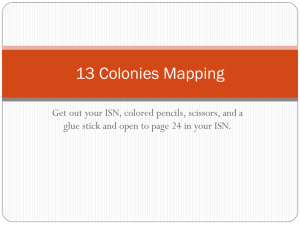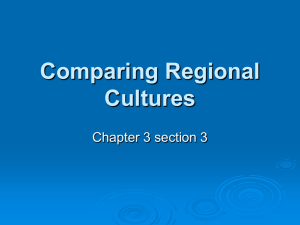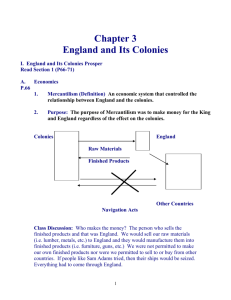Chapter Two The Planting of English America
advertisement
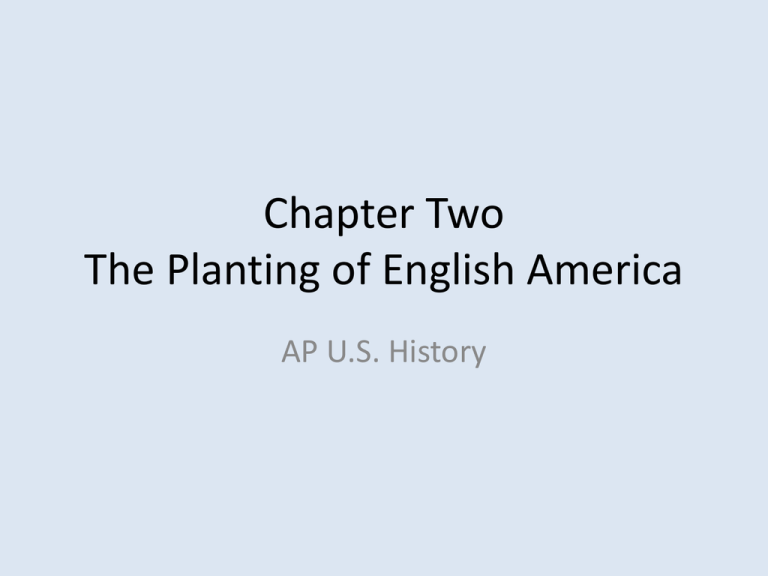
Chapter Two The Planting of English America AP U.S. History Types of Colonies • proprietary colonies - land grants given to individuals or small groups • charter colonies - land grants (or charters) given to private companies • royal colonies - Crown had complete control over governmental actions (they appointed the govenor and the council) • Often chartered colonies became royal colonies after their charter was revoked. England’s Imperial Stirrings • Queen Elizabeth • Puritanism increases • Competition with Spain – Protestant England vs. Catholic Spain Elizabeth Energizes England • Sir Frances Drake – pirated Spanish ships • Sir Humphrey Gilbert/Sir Walter Raleigh - Roanoke • Defeat of Spanish Armada – naval dominance over Atlantic • England on eve of colonizing: – Strong unified nation under popular monarch – Religious unity – Strong nationalism England on the Eve of Empire • Overpopulation, unemployment • Land practice (primogeniture) • Joint Stock company – financial means England Plants the Jamestown Seedling • • • • • • • King – James VA Co. of London GOLD!!!! No Food?? No John Smith Powhatan 1609 – 1610 – Starving Time - 60 0f 400 survived Cultural Clash in the Chesapeake • Declaration of War against Indians • 2 Anglo-Powhatan Wars – Results? – Indians gone, colonists move West – VA co. bankrupt, lost charter, becomes royal charter • Diseases – destroyed cultures, traditions • Competition increased among groups for European goods Virginia: Child of Tobacco • John Rolfe • Basis of economy – “Colony built on smoke” • Plantations/rivers • Dutch – 20 slaves • Indentured servants • House of Burgesses – 1619 – first colonial parliament Maryland: Catholic Haven • • • • Lord Baltimore Proprietary Colony Safe Haven for Catholics, but… Act of Religious Tolerance 1649 - Catholics sought to protect their faith by granting a certain degree of religious freedom. The West Indies: Way Station… • Sugar Cane – expensive • dependent on slave labor - slaves outnumbered whites 4:1 • Barbados Code • As sugar plantations began to crowd out small farmers, many came to Carolina with their slaves to farm. Colonizing the Carolinas • Goal – grow food for Barbados • Rice – required hard labor – slaves • Slave Codes • Charlestown • North Carolina – VA’s “trash” 1712 Georgia • James Oglethorpe • Buffer between Carolina/Spanish Florida/French Louisiana • Savannah • Debtors Questions • What did England and the English settlers really want from colonization? Did they get what they wanted? • How did the reliance on plantation agriculture affect the southern colonies?

